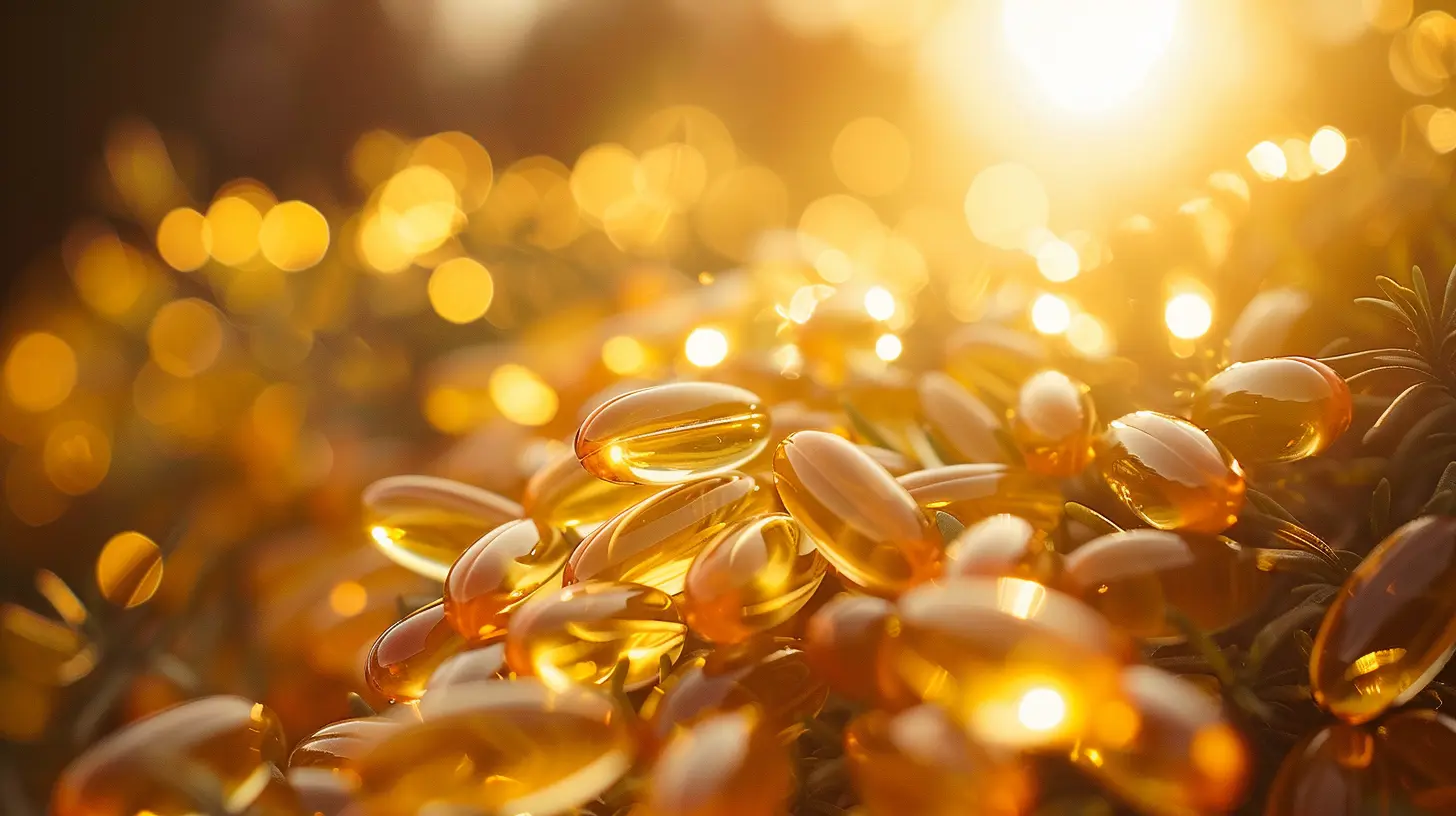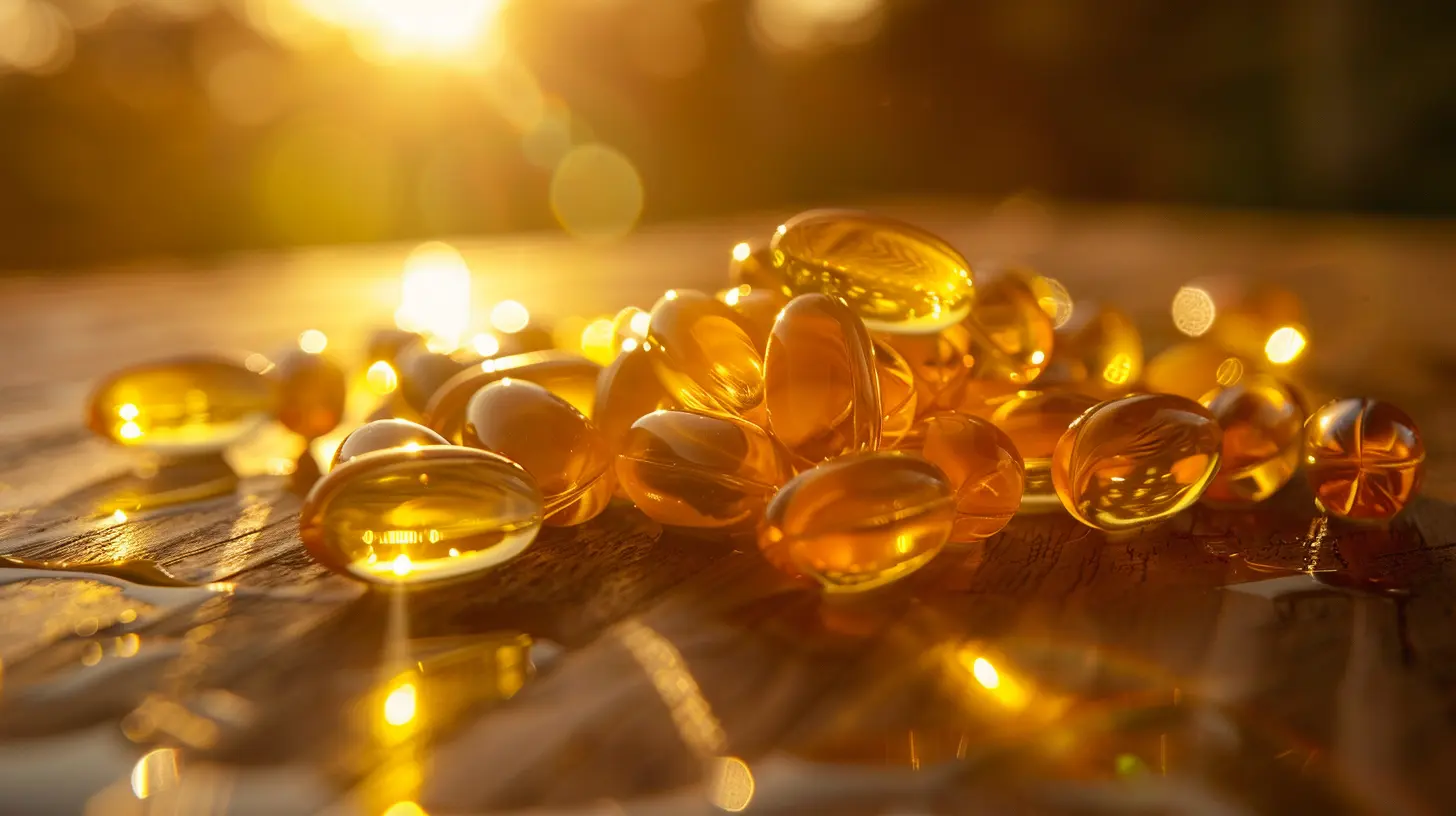The Role of Vitamin D in Hormonal Health
10 September 2025
Ah, Vitamin D—the so-called "sunshine vitamin." You’ve probably heard people rambling about it like it's the elixir of life. And honestly? It kind of is. Sure, it's known for keeping bones strong, but did you know it’s also a VIP when it comes to hormonal balance?
Yep, if your hormones are all over the place—feeling moody, dealing with fatigue, or even battling unexplained weight gain—Vitamin D (or rather, the lack of it) might be the sneaky little culprit. So, buckle up because we’re about to dive into why your hormones are basically crying out for more sunshine. 
Wait… Vitamin or Hormone? A Little Identity Crisis
Here’s the plot twist: Vitamin D isn’t just a vitamin. It’s actually a hormone. Yes, a hormone pretending to be a vitamin. Your body produces it when exposed to sunlight, and then it gets to work regulating other hormones like a strict but caring boss.Without enough of it, your endocrine system (a fancy term for the system that controls hormones) starts throwing tantrums. And trust me, when your hormones are unhappy, you are unhappy. 
Vitamin D and Its Hormonal Superpowers
Alright, let’s get into the real tea—how Vitamin D affects your hormones. Spoiler alert: It pretty much has its fingers in every hormonal pie.1. Vitamin D vs. Thyroid Hormones: The Balancing Act
Your thyroid is basically the body’s thermostat, controlling energy levels and metabolism. But if you’re low on Vitamin D? Say hello to sluggishness, brain fog, and unwanted weight gain.Research suggests that Vitamin D helps regulate the production of thyroid hormones (T3 and T4). Without it, your thyroid can't function properly, which can spiral into conditions like hypothyroidism.
So if you’re wondering why you feel like a sloth despite getting a full night’s sleep, maybe it’s time to check those Vitamin D levels.
2. The Connection Between Vitamin D and Cortisol: Stress Relief, Anyone?
Ah, cortisol—the infamous "stress hormone." A little bit of it can be useful (like for surviving awkward social situations), but too much? That’s when things go south.Low Vitamin D levels have been linked to cortisol dysregulation, meaning your body might be constantly stuck in fight-or-flight mode. This can lead to:
✔️ Chronic stress
✔️ Anxiety
✔️ Sleep disturbances
✔️ Weight gain around the belly (because obviously, stress loves to park itself right there)
Vitamin D helps keep cortisol levels in check, which means fewer emotional meltdowns over things like Wi-Fi outages.
3. Vitamin D and Insulin: The Blood Sugar Balancer
If your blood sugar is on a rollercoaster, Vitamin D might be part of the rescue team. It plays a crucial role in insulin sensitivity, which means it helps cells effectively absorb glucose.Low Vitamin D levels have been linked to insulin resistance, a major risk factor for Type 2 diabetes, weight gain, and metabolic syndrome. So yeah, if your sugar cravings are out of control, maybe it's not just your love for dessert—maybe it's your Vitamin D deficiency saying, "Help me!"
4. The Fertility Factor: Vitamin D and Sex Hormones
Trying to conceive? Or just want your reproductive system to not act like a drama queen? Vitamin D is crucial for both men and women when it comes to sex hormones.For Women:
- Supports estrogen regulation, which affects everything from mood swings to menstrual cycles.- May reduce symptoms of PCOS (Polycystic Ovary Syndrome).
- Plays a role in improving egg quality (because no one wants lackluster eggs).
For Men:
- Supports testosterone production (because low T levels? Not fun).- Improves sperm quality and count (yes, men need good Vitamin D levels too).
If your love life needs a little help, maybe skip fancy supplements and start by soaking up more sun.
5. Mood Swings and Mental Health: The Sunshine Antidepressant
Winter blues? Constant mood swings? Feel like crying over small inconveniences? Say hello to Vitamin D deficiency.Vitamin D is directly linked to serotonin production, aka the "happy hormone." In fact, low levels of Vitamin D have been associated with depression, anxiety, and general moodiness.
So if you're feeling down, before diagnosing yourself with every mental health disorder under the sun, maybe check if you’ve been avoiding actual sunlight for too long. 
Are You Deficient? Symptoms to Watch Out For
Not sure if your Vitamin D levels are in the gutter? Here are some red flags:❌ Constant fatigue and low energy
❌ Mood swings, anxiety, or mild depression
❌ Unexplained weight gain
❌ Muscle weakness or joint pain
❌ Frequent illnesses (hello, weak immune system)
❌ Hair loss (yes, Vitamin D even affects your hair!)
If you're nodding along to this list, maybe it's time to rethink your sun exposure. 
How to Boost Your Vitamin D Levels (Without Moving to a Tropical Island)
Alright, so you’re convinced you need more Vitamin D. Now what? Here are a few ways to level up your sunshine vitamin game:1. Get More Sunlight (Shocker, Right?)
- Aim for 15-30 minutes of direct sunlight daily (without sunscreen).- Best timing? Midday sunshine is the most effective.
2. Eat Vitamin D-Rich Foods
- Fatty fish (salmon, trout, mackerel)- Egg yolks (yes, stop throwing them away)
- Fortified foods (milk, orange juice, cereals)
- Mushrooms (some varieties naturally produce Vitamin D)
3. Take a Supplement (Because, Let’s Be Real, We’re All Indoors Too Much)
- Choose Vitamin D3 over D2 (it’s more effective).- Pair it with Vitamin K2 for better absorption.
- Get your levels checked before taking high doses (because even good things can be overdone).
The Bottom Line
So, what did we learn today? Vitamin D isn’t just some bone-health-obsessed nutrient—it’s a hormonal superhero quietly regulating everything from your mood to your metabolism.If you’ve been feeling off, instead of blaming Mercury retrograde, maybe consider that your Vitamin D levels need a serious boost. Get outside, eat better, and if necessary, pop that supplement—your hormones will thank you.
all images in this post were generated using AI tools
Category:
Healthy HormonesAuthor:

Madeline Howard
Discussion
rate this article
1 comments
Adria Becker
Great insights! Emphasizing vitamin D's importance in hormonal balance could enhance overall health awareness.
September 15, 2025 at 4:14 AM

Madeline Howard
Thank you! I appreciate your feedback and completely agree—highlighting vitamin D's role in hormonal balance is crucial for overall health awareness.


